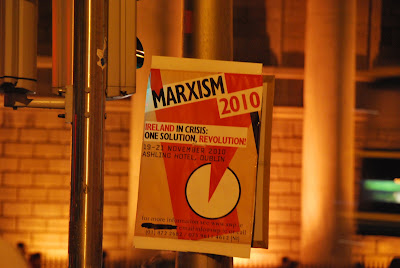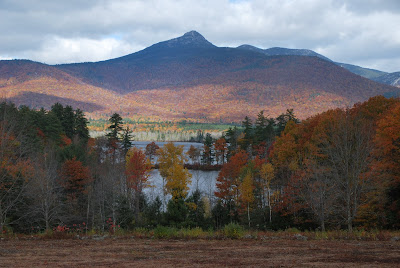 “Take out your laptops,” I told them, “and go to ‘Google Images.’ Then type in ‘19 highjackers.’” They did and the familiar lineup of Arab Muslim men showed up. “These men hijacked four planes on September 11th and flew three of them into buildings. They had put small knives to the throats of stewardesses and took over control of the planes. Ever since, small knives - even nail clippers - have been seized from airline passengers.
“Take out your laptops,” I told them, “and go to ‘Google Images.’ Then type in ‘19 highjackers.’” They did and the familiar lineup of Arab Muslim men showed up. “These men hijacked four planes on September 11th and flew three of them into buildings. They had put small knives to the throats of stewardesses and took over control of the planes. Ever since, small knives - even nail clippers - have been seized from airline passengers. 
“Now type in ‘Richard Reid.’” They did and various images of the shoe bomber’s face showed up. “This guy joined al Qaeda and tried to blow up a plane over the Atlantic by lighting a bomb made with plastic explosive hidden in his shoe. Ever since, airline passengers have been forced to remove their shoes for inspection.
“Now type in ‘Mohammed Gulzar & Umar Islam.’ In 2006, these two and six other British/Arab/Muslim terrorists plotted to blow up seven US-bound planes over the Atlantic with liquid explosives hidden in soft-drink bottles. Ever since, airline passengers have been forbidden to carry on containers of liquids with more than 3.4 ounces.
 “Now type in ‘Christmas panty bomber,’ I instructed. “This guy tried to set off a bomb in his underwear on a flight from London to Detroit. As a result, airline passengers have been subject to pat-downs, and now to full-body scans which produce an X-ray image of passengers revealing all their intimate body parts, as you can see in those images near the ‘panty bomber’s’ picture.
“Now type in ‘Christmas panty bomber,’ I instructed. “This guy tried to set off a bomb in his underwear on a flight from London to Detroit. As a result, airline passengers have been subject to pat-downs, and now to full-body scans which produce an X-ray image of passengers revealing all their intimate body parts, as you can see in those images near the ‘panty bomber’s’ picture.
“Turn to page 884 in your textbook,” I told them, “and read along as I recite the Fourth Amendment in our Bill of Rights: ‘The right of the people to be secure in their persons, houses, papers, and effects, against unreasonable searches and seizures, shall not be violated; and no warrant shall issue but upon probable cause, supported by oath or affirmation, and particularly describing the place to be searched, and the persons or things to be seized.’ What part of this Amendment applies to the full-body scans and pat-downs?” I asked.
“Where it says ‘right to be secure in their persons,” suggested a girl.
“That’s right,” I said, “against ‘unreasonable’ searches. Given how these security procedures have evolved, are they ‘unreasonable’? Who thinks they are?

Only three or four raised their hands in each class.
“Who thinks they’re reasonable?”
All the others raised their hands.
“Why are they reasonable?” I asked.
“Because we want the planes to be safe,” said another girl.
“If you don’t want to let them search you, you don’t have to fly,” suggested a boy.
“So, it sounds like most of you believe what the TSA, or “Transportation Safety Authority” does to search people is reasonable, right?” I asked.
Most of them raised their hands.
“Okay,” I said. “Now consider this case. A guy named John Tyner got tickets from someone who invited him to go on a hunting trip. He went online to check out security procedures at the airport in San Diego where he lives. He didn’t want to go through the full-body scan because of radiation and embarrassment, and the airport web site indicated it didn’t use them. But when he got there, some passengers were randomly picked for full-body scans and he was one. Most of the passengers just had to take off their shoes, etc. and go through the metal detector like most of you have. He said he was willing to do all that, but he was unwilling to have a full-body scan or an ‘enhanced” pat-down.’ When a TSA person tried to pat him down, he said, ‘Don’t touch my junk or I’ll have you arrested.’ ‘Junk’ is a slang word for his private parts - a new one to me.”
 From their reaction, I got the impression they knew the term already.
From their reaction, I got the impression they knew the term already. “The TSA person then reported Tyner to his supervisor. Tyner decided he didn’t want to go on his trip if he had to go through all that and just wanted to leave the airport. TSA, however, is filing charges against him and he’s subject to a $10,000 fine.”
I waited for all that to sink in and asked: “So, is Tyner’s experience with TSA reasonable?”
“TSA should have just let him go through the metal detector like the rest of the passengers,” said a girl.
“He shouldn’t be charged with anything if he just wanted to go home,” said another girl.
“TSA claims that if he went into the security area, he has to complete the process,” I explained.
“That’s ridiculous,” said a boy.
“Well,” I said. “We’ll have to see how a judge thinks the Fourth Amendment applies here and what he or she thinks is reasonable. That’s how our system works and the US Supreme Court would be the final judge of whether Mr. Tyner’s and other people’s rights are being violated or not.”
"Looking at pictures of the hijackers, what did you notice they had in common?" I asked.
"They all had dark complexions," said a boy.
"Anything else?"
"They all had dark hair," said a girl. "They looked Muslim."
"You mean they looked Arabic," I suggested.
"Yeah."
"Jews in Israel are more frequent targets of attack by Radical Muslims, but when I flew there and back three years ago, I didn't have to go through security procedures US airports require," I told them. "Israelis profile terrorists and give passengers who fit the profile extra scrutiny. Should US airports do that too instead of treating all passengers as if they could be terrorists?"

"No," said a girl.
"Why not?" I asked.
"Because if they weren't terrorists, they might feel bad that they were singled out," she said.
"Okay," I said. "In September of last year, an al Qaeda terrorist tried to assassinate a Saudi Arabian prince with a bomb hidden up his rear end and set off by remote control. The prince was only slightly injured and the bomber was blown apart. One report I read indicated that rectum bomb could have blown up the fuselage of a passenger jet causing it to crash. Will all American airline passengers be required to submit to body cavity searches next?"
"Ee-yoo," said the girl.
"At that point, maybe profiling wouldn't sound like a bad idea."




































